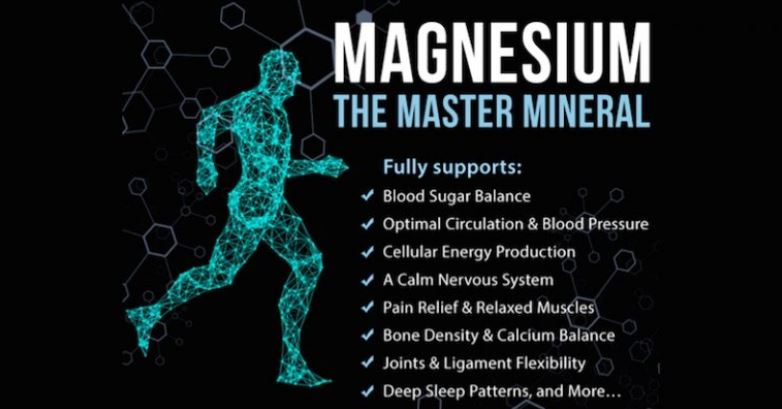Muscle Cramps? It Could be a Sign of Magnesium Deficiency Can Be Fun For Anyone

Muscle mass Pains? It Could be a Sign of Magnesium Deficiency
Muscular tissue aches can be both painful and troublesome, typically striking at the most unfavorable times. While they are a popular incident, several individuals don't recognize that they might be a indicator of magnesium mineral shortage. In this article, we'll discover what magnesium mineral is and how it affects our physical bodies, as effectively as some indicators and indicators of magnesium mineral deficiency.
What is signs of magnesium deficiency ?
Magnesium mineral is a mineral that participates in an crucial role in several physical functions. It's involved in over 300 chemical responses in the body system, consisting of muscle and nerve feature, blood stress law, and healthy protein formation. Magnesium mineral is likewise vital for maintaining healthy bone tissues and pearly whites.
The Recommended Daily Allowance (RDA) for magnesium mineral varies located on age and gender. For adult women aged 31-50 years aged, the RDA is 320mg per day; for men of the exact same age variety it's slightly much higher at 420mg per time.
Signs of Magnesium Deficiency
While most people consume adequate magnesium by means of their diet plan to comply with their everyday necessities, some individuals might still experience a shortage due to particular wellness conditions or lifestyle elements.
Some indicators of magnesium mineral deficiency consist of:
1. Muscular tissue Cramps - As stated earlier, muscle pains may be a sign of reduced levels of magnesium in the body system. This is because magnesium assists manage muscular tissue tightenings through balancing calcium levels in the muscular tissues.
2. Fatigue - Feeling worn out all the opportunity may additionally be a sign of magnesium insufficiency since this mineral aids convert meals right into electricity.
3. Mood Changes - Reduced levels of magnesium mineral have been connected to anxiety and anxiety.
4. Irregular Heartbeat - Magnesium participates in an crucial role in moderating soul rhythm by regulating calcium amounts within heart tissues.
5. Nausea & Vomiting - Magnesium insufficiency can easily lead to gastrointestinal concerns such as queasiness or vomiting.
Foods That Contain Magnesium
The great news is that magnesium can easily be found in a wide array of foods. Some of the ideal sources consist of:
1. Leafed Greens - Spinach, cabbage, and kale greens are all great sources of magnesium mineral.
2. Nuts & Seeds - Almonds, cashews, and pumpkin seeds are all higher in magnesium.
3. Whole Grains - Brown rice, quinoa, and entire wheat bread are all good resources of this mineral.
4. Legumes - Dark beans, chickpeas, and lentils are all higher in magnesium mineral.
5. Dairy Products - Yogurt and milk are both great sources of magnesium mineral as well as calcium.
Supplements for Magnesium Deficiency
In some cases, it may be essential to take a magnesium supplement to repair a shortage. Having said that, it's essential to talk to your medical care carrier prior to beginning any new supplements or helping make improvements to your diet regimen.
There are lots of various types of magnesium mineral supplements accessible featuring:
1. Magnesium Citrate - This kind is quickly absorbed through the physical body and is usually made use of as a laxative for constipation comfort.

2. Magnesium Glycinate - This style is much less very likely to create digestive system issues since it's effortlessly soaked up through the body without counting on stomach acid for absorption.
3. Magnesium Chloride Oil - This contemporary function may be sprayed onto the skin layer and soaked up by means of the pores for simple relief from muscle mass aches or discomfort.
Conclusion
Muscle mass aches may be a sign of magnesium mineral deficiency which may be simply remedied by means of diet modifications or supplements if required. It's vital to spend attention to other indications such as exhaustion or mood improvements which might signify low degrees of this essential mineral in your body as well. By taking in additional foods that contain magnesium like leafed greens or nuts & seeds you can make sure you're receiving sufficient each time without needing any added supplementation unless advised through your healthcare provider.
